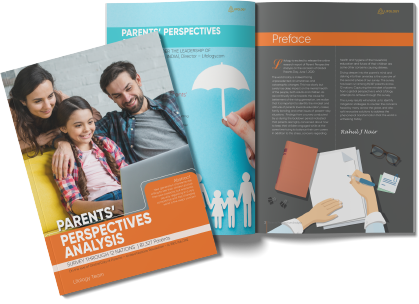In today’s fast-paced and constantly changing work environment, adaptability has become the most important skill you can have. It doesn’t matter what your job is or how long you’ve been doing it, being able to adapt is crucial. In fact, it’s one of the top things employers look for when hiring.
If the past few years have taught us anything, it’s that we need to be flexible and roll with the punches. Being adaptable is a big part of dealing with stress, bouncing back from setbacks, and growing in your career. Research shows that adaptability is key to success when things are changing quickly. It helps us learn faster and better, and it keeps us focused on the opportunities ahead instead of just the challenges.
What is Adaptability and Why is it Important?
Adaptability is the ability and willingness to adjust your approach or behavior when faced with new situations or challenges. In today’s fast-paced and ever-evolving work landscape, adaptability has become a non-negotiable skill for success. It’s about being flexible, open to change, and willing to learn new things. Those who possess adaptability can quickly pivot when priorities shift or unexpected circumstances arise, allowing them to stay ahead of the curve and thrive in uncertain times.
The rapid advancements in technology, particularly in automation, artificial intelligence, and digital platforms, have been a major catalyst for change in the workplace. The emergence of generative AI, like ChatGPT, is a prime example of how these innovations are reshaping industries and job roles. While some traditional jobs are becoming obsolete, entirely new career paths are opening up. This dynamic landscape requires professionals to be adaptable in their skill sets and career choices to remain relevant and competitive.
Embracing adaptability also entails a readiness to challenge one’s existing knowledge and commit to continuous learning to stay in sync with industry advancements. It means shedding outdated practices and opening oneself to new approaches. In this context, “unlearning” becomes just as crucial as learning itself, fostering agility and the ability to reinvent oneself to stay at the forefront of one’s field.
In the rapidly evolving professional landscape, those who cling to old ways risk not only becoming obsolete but also experiencing stress and burnout due to feeling left behind. Adaptability, therefore, becomes a key factor in maintaining relevance and well-being in the face of constant change.
How to Develop Adaptability Skills
Whether you’re a student navigating the academic landscape or a professional charting your career path, honing your adaptability skills is crucial for long-term success. Here’s how you can develop adaptability:
Embrace a Growth Mindset:
- To cultivate a growth mindset, start by viewing challenges as opportunities for learning and development rather than obstacles to fear. Reframe setbacks as valuable stepping stones on your path towards achieving your goals. Embrace a “can-do” attitude and believe in your inherent ability to acquire new skills and knowledge. Foster a sense of curiosity by actively asking questions, seeking out novel experiences, and engaging with the world around you.
Practice Flexibility:
- Practicing flexibility is key to adaptability. This means being open to new ideas and perspectives, avoiding getting stuck in rigid routines. When faced with changing priorities, it’s important to adapt your focus and re-evaluate what’s most important. Effectively allocating your time and energy based on these shifting priorities is crucial. Additionally, be prepared to compromise and explore alternative solutions when your initial plans don’t align with the changing circumstances.
Build Resilience:
Develop healthy coping mechanisms to manage stress and setbacks. This could include regular exercise, mindfulness practices like meditation, or simply spending time in nature to recharge. When faced with failures, don’t dwell on them but instead analyze what went wrong and use that knowledge as a springboard for future improvement. Additionally, seek support from a network of positive and encouraging individuals who can provide guidance and motivation when you need it most.
Enhance Your Problem-Solving Skills:
- When faced with complex issues, break them down into smaller, more manageable tasks to avoid feeling overwhelmed. Instead of immediately settling on the first solution, brainstorm a variety of options and carefully assess the advantages and disadvantages of each. Be open to experimentation and willing to try different approaches to discover what works best in a given situation. Remember, adaptability involves embracing a fluid and creative approach to problem-solving, allowing you to navigate challenges with greater ease.
Stay Informed and Up-to-Date:
- Actively follow industry trends by reading relevant articles, attending conferences, and networking with professionals in your field. Commit to continuous learning by seeking out new knowledge and skills through courses, workshops, or even advanced degrees. Additionally, embrace new technologies as they emerge, demonstrating a willingness to learn and adapt to the tools and platforms that shape the modern workplace.
By actively cultivating these skills, you’ll be well-equipped to navigate the ever-changing landscape of the modern world, both in your academic pursuits and your professional life. Remember, adaptability is not just about surviving change – it’s about thriving in it.








